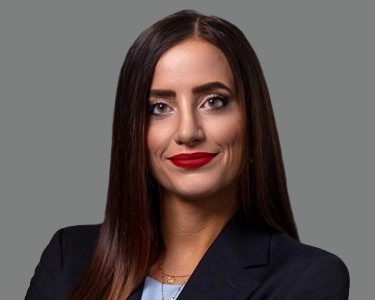ASK LLP Cases Selected for Bellwether Discovery
May 30, 2025

Lighting the Way Forward in Hair Relaxer MDL
Before the courtroom doors open and the first witness takes the stand, a quieter but pivotal phase unfolds in multidistrict litigation (MDL): bellwether discovery. This stage is where evidence is collected, facts are tested, and the contours of the dispute come into focus.
ASK LLP has been selected to lead two of the initial bellwether discovery cases in the Hair Relaxer Multi-District Litigation (MDL). Centralized in the Northern District of Illinois before the Honorable Judge Mary M. Rowland, the MDL brings together claims from women nationwide who allege that prolonged use of chemical hair relaxers caused serious health consequences, including endometrial, uterine, or ovarian cancer.
Role of Bellwether Trials
The word “bellwether” comes from an old farming term. Shepherds would place a bell on the lead sheep (the “wether”) to help guide the entire flock. In the legal world, bellwether cases serve a similar role: they lead the way.
In large-scale litigation like the Hair Relaxer MDL, bellwether cases are carefully selected test cases that represent the broader group of lawsuits. Their purpose is to assess the weaknesses and strengths of claims, evaluate damages, and gauge how juries may respond to evidence. Strong outcomes from these cases can bring clarity and momentum amid a sea of claims, helping to steer the entire litigation forward.
Roadmap Ahead
The Court has laid out a structured timeline to guide the initial 32 bellwether cases, beginning with focused discovery where both sides exchange documents, take depositions, and gather evidence to assess the merits. At the same time, both sides will conduct expert discovery on general causation, which addresses whether hair relaxer products can cause cancers such as endometrial, uterine, or ovarian cancer. The expert opinions may later be challenged under Rule 702 (Daubert), which determines whether the expert testimony is scientifically reliable and admissible in court.
After the initial round of discovery in the 32 cases, which is scheduled to conclude in February of 2026, the parties will narrow the pool to 12 cases for further discovery and trial consideration. From those 12 cases, 10 cases will be selected as possible bellwether trials and will proceed into additional case-specific discovery where experts provide opinions tailored to each individual plaintiff. That process will continue into the fall of 2026 and includes another round of expert reports, discovery, and Daubert motions focused on individual claims.
The bellwether trials could begin as early as late 2026 or sometime in 2027, offering a glimpse into how juries may interpret the facts and arguments presented. While the path through mass tort litigation is complex and unpredictable, each step forward brings greater clarity, moving the process closer to defining moments that shape its course and open the door to global resolution.

About the author: Tessa Cuneo focuses her practice on mass tort and complex civil litigation, representing individuals who have suffered due to corporate negligence, abuse, and greed.
With extensive experience in consumer protection, workers’ rights, antitrust, and class action cases, she has dedicated the majority of her legal career to fighting for justice on behalf of those who have been exploited or marginalized.
